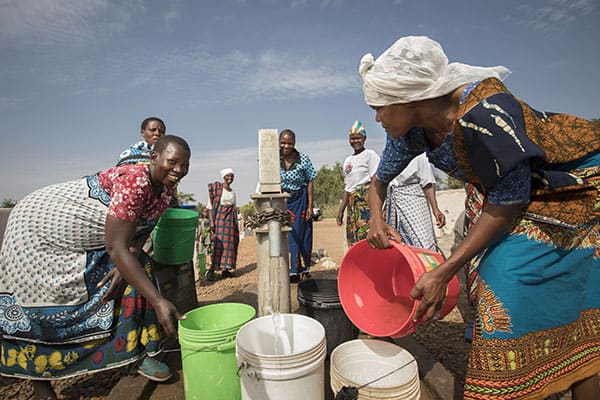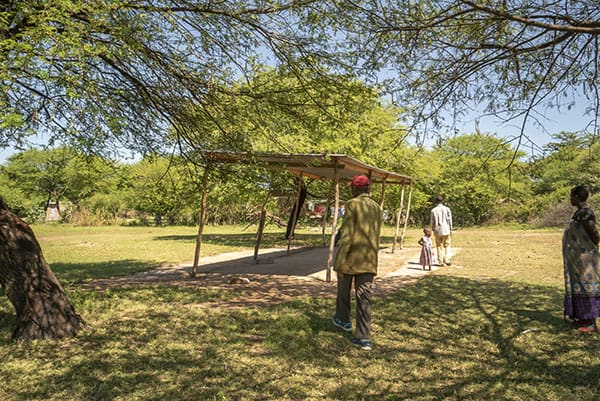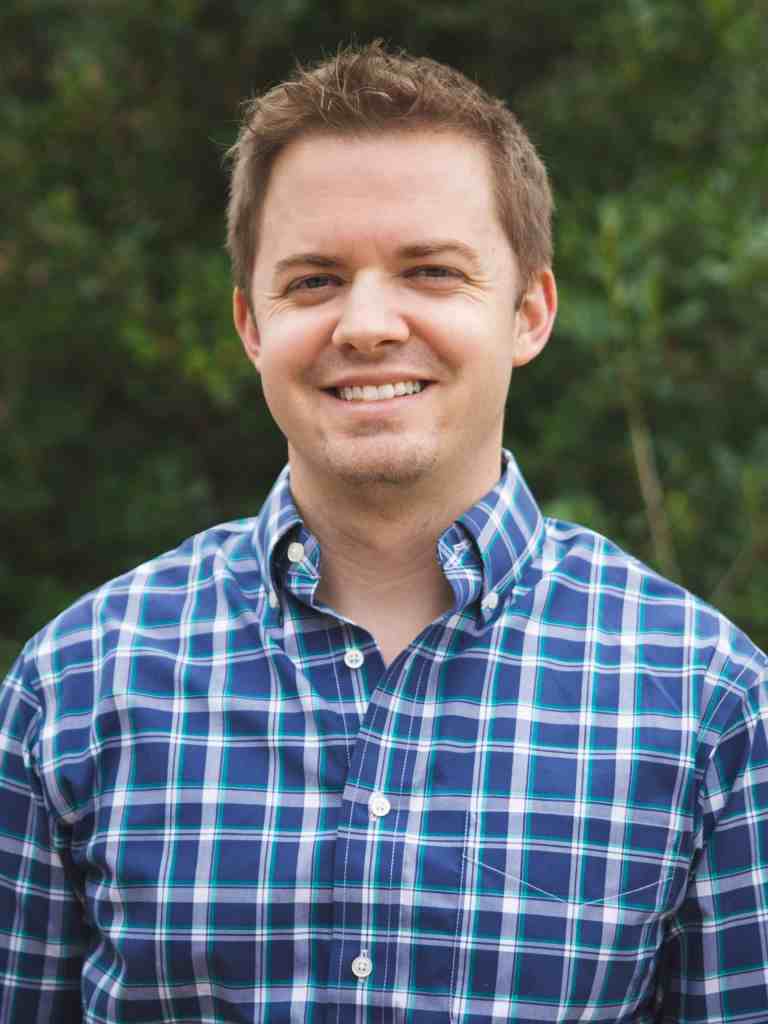Water Wells Proved What People Found Hard to Believe
By Stephen Hunt
In rural Tanzania near the village of Old Maswa, a group of children sat around a hand-dug hole. The children, some as young as toddlers, dipped a bowl into the puddle of water that seeped into the hole and poured the cloudy brown water they retrieved into a jerrycan.
Over and over again, one of the boys used the bowl to skim the mucky surface off of the puddle and toss the debris away. Then he attempted to quickly fill the bowl but had to be careful to not scoop in dirt along with the water. Filling the jerrycan in this way was an excruciatingly slow process.
A team from Unto® drove up to this scene and they stopped to visit with the locals. The team knew that this job would consume more than just a day or two for the children; this would be their daily life for about four straight weeks. After that, the hole would dry up. The kids would need to walk even further from home to find a different source of water.
One girl around the puddle that day was 10 years old. When asked why she wasn’t in school, she replied, “We have too much to get done.” It was a matter-of-fact — water is necessary for cooking, cleaning, drinking, and maintaining livestock and agriculture. With so much time and effort required to find and transport the water her family needed to survive, there simply wasn’t time to go to school. In her community, school is viewed as a luxury for the privileged few and not as a necessary endeavor.
“Broken Promises”
As our team played with the young Tanzanian children, a woman approached and began talking with our in-country partner, Dismas, in Swahili. The discussion began cordially, but the woman’s attitude began to harden. After the conversation she turned and left. Dismas had tears in his eyes.
The woman told him that “white people” always come, take pictures of their children, and make promises about what they are going to do: that they’re going to go home and raise money to help. But they never come back, she said. She believed they raised money and but kept it for themselves. “I don’t believe you are here to help,” she told Dismas. “All of ‘you’ always let us down.”
Dismas prayed right then for the opportunity to relieve the suffering of these children, to encourage this mother, and to reveal hope to them for this life and beyond. He prayed for an opportunity to serve these people. One year later, God made a way to return to the village.

Women collect clean water at one of the new wells.
Hope Fulfilled
Today, Unto has drilled or repaired several water wells that now serve approximately 5,000 people in and around Old Maswa. As a result, many lives have fundamentally changed. Before the wells, people were entirely subject to the elements. If it didn’t rain enough, they were negatively affected in numerous ways. If it rained too much, as it often does during the intense rainy season, crops and irrigation systems washed away by flooding.
Previously, a government-dug well attempted to serve the village, but it cost money to use it and could not possibly provide enough water for everyone. After waiting in line, most people filled about five jerrycans and then used carts to carry them home. If usage was maximized from sunrise to sunset, only about 80–90 people — less than 2% of the population — could use the well in a day. Meanwhile the other 98% of the people suffered from lack of water — they either drank dirty water that made them sick or they simply went without.
Furthermore, the government well was hand-dug. It didn’t reach very deeply into the earth, and therefore dried up at various points each year when rainfall was lighter.
The wells built in partnership with Unto help mitigate these challenges. They are drilled with deep-drilling equipment so the wells do not run dry, and they produce safe, clean water. They are spread throughout the area, and each serves a much smaller, manageable segment of the population. They are free for people to use, and they are owned and maintained by nearby churches that formed soon after the wells were built.

People begin to gather at the structure where the church meets near one well.
Our field team members have seen clearly how water wells lead to new churches. In fact, the church that formed after the first well in Old Maswa has now multiplied into four more churches. They have seen how the gift of water leads to the blessing of new life, and how showing the kindness of Jesus leads directly to credibility in the community and effectiveness in building relationships.
When people who follow Jesus come to a village, get to know the people, return to install a water well that is free and easy to use, and then continue to build relationships with them — that is a revolutionary concept. Before a single word is spoken, many people’s minds have already changed.
The wells in and around Old Maswa proved what people found so hard to believe: that Dismas, Unto, and people like you genuinely care and will not make empty promises. Rather, we care deeply and want to do our part to see their suffering relieved, their dignity restored, and hope revealed.
Previously, a government-dug well attempted to serve the village, but it cost money to use it and could not possibly provide enough water for everyone. After waiting in line, most people filled about five jerrycans and then used carts to carry them home. If usage was maximized from sunrise to sunset, only about 80–90 people — less than 2% of the population — could use the well in a day. Meanwhile the other 98% of the people suffered from lack of water — they either drank dirty water that made them sick or they simply went without.
Furthermore, the government well was hand-dug. It didn’t reach very deeply into the earth, and therefore dried up at various points each year when rainfall was lighter.
The wells built in partnership with Unto help mitigate these challenges. They are drilled with deep-drilling equipment so the wells do not run dry, and they produce safe, clean water. They are spread throughout the area, and each serves a much smaller, manageable segment of the population. They are free for people to use, and they are owned and maintained by nearby churches that formed soon after the wells were built.
Published July 31, 2018

Stephen has served as a content writer and researcher for Unto. He has been on staff since October 2017.





